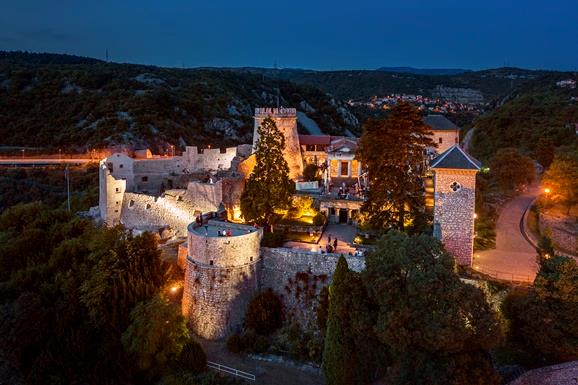
Since 24 March 2016, when Rijeka was named the European Capital Culture 2020, all the necessary measures have been taken to implement the project, from establishing the Rijeka 2020 Company to conducting the programme and securing funding for the City of Rijeka initiating major infrastructure interventions.
The European Capital of Culture project will put Rijeka and Croatia on the cultural map of Europe, since the ECoC is more than just a project undertaken by the City of Rijeka and the region, it is a national project aimed at showcasing Croatia to Europe. Moreover, Croatia will become the first country in the history of the European Union to simultaneously hold the presidency of the Council of the European Union and hold the title of the European Capital of Culture in 2020.
As part of the European Capital of Culture project, the infrastructure will be renewed and new cultural institutions will be opened, such as the Museum of Modern and Contemporary Art, the City Library, Children’s House, the City Museum of Rijeka, the new RiHub cultural centre and the Galeb ship-museum.
The Rijeka European Capital of Culture project encompasses 29 cities, towns and municipalities from Primorje-Gorski Kotar County and 129 partners from the EU, with support provided by sister cities and former European Capitals of Culture, as well as cultural exchange with 48 countries across Europe and the globe.
More than 100 scholars, a plethora of sports clubs and organisations, as well as a majority of cultural and educational institutions from Primorje-Gorski Kotar County are expected to participatě, which adds up to almost 12,000 people. Approximately 1700 residents of Rijeka and the county are involved through civil initiatives and educational programmes.
With around 800 professionals and volunteers from Croatia and Europe aiding in the implementation of the project, over 3000 performers participating and the arrival of an estimated million visitors, the number of guests in Rijeka and Kvarner in 2020 will amount to 4 million.
The planned project budget is €30 million, with the Republic of Croatia and the City of Rijeka providing €10 million each, while the rest will be funded by other sources, including the first Croatian philanthropic organisation PartneRi, which brings together around 50 businessmen.
The Rijeka 2020 – European Capital of Culture project will comprise approximately 1000 individual programmes from the opening of the event on 1 February 2020 to late February 2021, ranging from pop-culture to high-brow culture, from community programmes to alternative art and from traditional to contemporary artwork.
During the implementation of the project, almost 100 educational programmes in the fields of creative industries, cultural management and entrepreneurship will provide education for 2500 participants, which will inevitably produce a large staff pool in the future.
As early as 2019, the pre-programme of the event will see Rijeka welcome an array of artists and host three new festivals (the children’s Slide festival, the Porto Etno Festival of World Music and Gastronomy and the Sailor Sweet & Salt Music Festival), which will expand their programmes in 2020.
A one-of-a-kind urban zipline, stretching from the medieval Trsat Castle to ExPort Delta at sea-level, is scheduled to open in 2019 as a special feature of the pre-programme.
Although the 2020 programme rollout is slated for September 2019, we can already announce some of the programmes.
The Lungomare Site-Specific Art consists of a series of 10 contemporary art installations at ten different locations in Kvarner Bay. The programme was devised by world-renowned artists.
The multi-confessional Ekumena pavilion designed by the notable architect Nikola Bašić will become a new oasis of peace amid the urban Rijeka environment and a place where believers of all religions can meditate and/or pray.
The highlights of the content-rich exhibition programme include “The Nineties: Scars“, an exhibition of modern art in Eastern Europe as a process of incomplete transition.
Art aficionados are bound to be interested in the exhibition Klimt Unknown: Love, Death, Ecstasy, which will display seldom seen artwork by the young Klimt.
The Croatian National Theatre Ivan pl. Zajc will also offer an eventful programme.
Richard Wagner’s opera Tristan and Isolde, directed by the famed director Ann Bogart, will be performed at the Rijeka theatre for the first time in its history.
The world-famous choreographer Andonis Foniadakis is preparing the premiere of the ballet Burning Water, while one of the most prominent European theatre troupes, Needcompany, will introduce themselves with the play All the Good.
In any case, there are plenty of valid reasons for culture vultures to visit Rijeka in 2020.
Web : http://www.visitrijeka.eu
